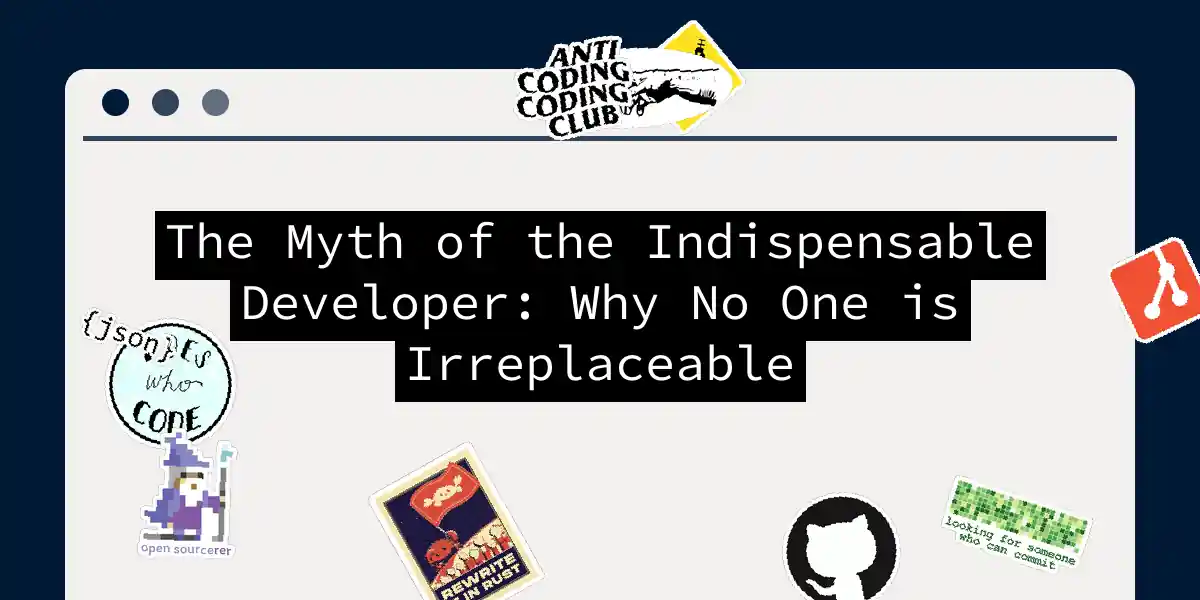The Myth of the Indispensable Developer: Why No One is Irreplaceable
In the world of software development, there’s a pervasive myth that some developers are indispensable. The idea is that certain individuals possess unique skills or knowledge that make them irreplaceable, and without them, the entire project would crumble. However, this notion is more myth than reality.
The Specialist vs. Generalist Debate
To understand why no developer is truly indispensable, let’s delve into the specialist vs. generalist debate. In software development, teams often adopt either a specialist or generalist structure[2].
Specialists
Specialists are experts in narrow, specific areas. They bring deep knowledge and can develop high-quality systems without lags. However, this structure can lead to communication gaps and a lack of general knowledge among team members. Here’s a simplified sequence diagram to illustrate the potential communication issues:
Generalists
Generalists, on the other hand, have broad skills and can handle end-to-end development of features or projects. This structure ensures that everyone in the team has a good understanding of how the product works, making it easier to focus on product development. Here’s a flowchart showing the flexibility of generalists:
The Reality of Team Dynamics
In reality, most successful teams blend both specialist and generalist roles. This hybrid approach ensures that while there are experts in specific areas, there is also a level of cross-functional knowledge that prevents any single developer from becoming a bottleneck[2].
Myth-Busting: The Indispensable Developer
Myth #1: Unique Skills Make Developers Irreplaceable
One common myth is that certain developers have unique skills that no one else possesses. However, with the right training and documentation, these skills can be transferred. Modern application development software is designed to be accessible and user-friendly, even for those with limited budgets or resources. For instance, low-code and no-code tools simplify development, making it possible for a broader range of people to contribute[1].
Myth #2: Knowledge Silos Are Necessary
Another myth is that knowledge silos are necessary for complex projects. While it’s true that specialists bring deep knowledge, it’s equally important to ensure that this knowledge is shared and documented. Tools like version control systems (e.g., Git) and collaborative platforms (e.g., Jira, Trello) help in disseminating knowledge across the team.
Myth #3: Adding More Developers Always Helps
The myth that adding more developers to a project always speeds it up is also misleading. While additional hands can help, they can also introduce communication inefficiencies and duplicated efforts. The key is to balance team size with project complexity and maintain a cohesive workflow[4].
Building a Resilient Team
To build a team where no single developer is indispensable, you need to focus on several key aspects:
Cross-Training and Knowledge Sharing
Encourage cross-training and knowledge sharing within the team. This can be achieved through regular workshops, code reviews, and pair programming. Here’s a simple state diagram illustrating the process:
Documentation and Tools
Use robust documentation tools and version control systems to ensure that all knowledge is captured and accessible. This includes detailed project documentation, code comments, and commit messages.
Agile Methodologies
Adopt Agile methodologies that emphasize collaboration, continuous improvement, and flexibility. Agile teams are better equipped to handle changes and ensure that no single developer is a bottleneck[4].
Conclusion
The myth of the indispensable developer is just that—a myth. By fostering a culture of knowledge sharing, cross-training, and using the right tools and methodologies, you can build a resilient team where every member is valuable but not irreplaceable.
In the end, it’s not about finding the superhero developer who can save the day; it’s about building a team that can collectively achieve greatness. So, the next time you hear someone say, “We can’t lose John; he’s the only one who knows how to do this,” remind them that with the right approach, anyone can be replaced, and the project will still thrive.
And remember, in software development, the only constant is change. Embrace it, and you’ll find that your team becomes not just a group of individuals but a cohesive, unstoppable force.
